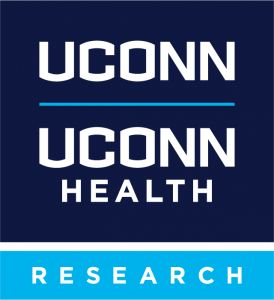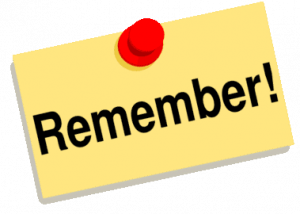
IN THIS ISSUE:
- AAALAC Site Visit
- EH&S Audits
- Biosafety Survey
- Unpaid Experiences
- Clinical Resources Form
- Research Security – Economic Espionage
- Research Compliance in the News
The Triennial AAALAC International site visit is March 16th and 17th! |
 The Association for Assessment and Accreditation of Laboratory Animal Care (AAALAC) International site visitors will be touring all UConn Health animal care facilities and labs that use animals on March 16th & 17th.
The Association for Assessment and Accreditation of Laboratory Animal Care (AAALAC) International site visitors will be touring all UConn Health animal care facilities and labs that use animals on March 16th & 17th.
Dr. Chidambaram gave an “AAALAC Site Visit Prep Talk” on February 28th and the recorded session is accessible through MediaSite. An AAALAC Site Visit Checklist was sent to all animals users.
The Office of Environmental Health and Safety (EH&S) is tasked with maintaining programs which support the safety, health and well-being of employees, students, staff and visitors. We also strive to promote a culture of safety and compliance at UConn Health through our interactions with stakeholders, including laboratory audits, training programs, and risk assessments. As most researchers are well aware, EH&S completes a mandatory audit of all research laboratories on an annual basis, and 2022 proved to be quite interesting as this is the first year we collected specific data. This data showed the need for a “Laboratory Safety Refresher training.” Many of the identified deficiencies were basic lab safety practices of which laboratory staff were not aware, or the proper message was not conveyed/comprehended at the time of assignment. Some laboratories were operating very compliantly with no deficiencies, others required some assistance from EH&S.
Examples of findings in each category are as follows:
General Chemical Safety:
|
Satellite Storage areas:
|
Personnel Protective Equipment:
|
Chemical Fume Hoods:
|
High Hazard Chemical Issues:
|
Chemical Inventory:
|
Other EH&S Concerns:
- Excessive clutter
- Weekly eyewash flushing completed
- Improper biohazardous waste disposal
- Dry ice and LN2 stored in confined locations
- Excess flammable solvents not stored in chemical storage room
As part of efforts to provide our stakeholders with important safety information, EH&S is pleased to announce the roll-out of our brand new, comprehensive laboratory safety and waste management training!
A notification was sent mid-February about availability of this new training which is accessible on the platform MediaSite. Completion of this annual training requirement will help to ensure that Principal Investigators, lab supervisors and personnel are familiar with the requirements found in UConn Health’s OSHA mandated 2023 Chemical Hygiene Plan (CHP), as well as the other policies and guidance statements found on EH&S’s website. Please take a moment to reacquaint yourself with the contents of the CHP and review the most recent updates for 2023. It is critical that you and your staff be familiar with the information contained within this document to ensure a safe work environment for all. As we look forward to accreditation and inspection visits from DPH, AAALAC, and others in 2023, we want to be sure the UConn Health community is well prepared with the safety information this refresher training will provide. Please join us in making 2023 a safe, healthy, and productive year at UConn Health.
- Lab Safety & Chemical Waste Management Training: https://uconnhealth.mediasite.com/Mediasite/Play/2d4d8c943b194bad8b4f7e426232d6241d
- Chemical Hygiene Plan (CHP): https://content.research.uconn.edu/pdf/uch/rcs/ehs/CHP.pdf
- EH&S website: https://ovpr.uchc.edu/services/rics/ehs/
Steve Jacobs, EH&S Director
The Biosafety Program would like to thank the labs that have completed their 2022 Biological Agent and Materials Survey, and let this serve as a reminder to those who haven’t done so, please do. If you need your individual survey link, please contact Victoria Scranton.

Get ready for shorter lines at the autoclaves! As we all know, many of our autoclaves are at end of their life cycle, or are constantly under repair. Starting in April, we will be receiving the first installation of several new autoclaves in various locations at 400 Farmington and 263 Farmington.
To contact us, please email IBC@uchc.edu or BioSafety Program Coordinator, Victoria Scranton.
 A Note about Unpaid Experiences
A Note about Unpaid Experiences
Summer’s coming! As a reminder for researchers looking to offer unpaid experiences in your lab, plan ahead as it takes several weeks for the unpaid experiences paperwork to be processed.
For information on how to sponsor an unpaid experience, please visit the HR website: https://health.uconn.edu/human-resources/services/organization-and-staff-development/unpaid-experiences/hosting-an-unpaid-experience/
And please do not forget to forward the Safety Checklist for Unpaid Individual with Potential Exposure to Workplace Hazards to vscranton@uchc.edu.
 Did you know? The OVPR asks external investigators who are in need of UConn Health clinical resources for their research studies to complete and submit the Confirmation of Available Clinical Resources Form (including Inpatient Stays). In this form, the investigator should describe all the clinical resources that will be required for the research study. Completed forms (along with a copy of the approved protocol) are to be submitted for approval by research and hospital administration (emailed to irb@uchc.edu). Note: External protocols should describe the use of UConn Health as a research site. Researchers will need form approval in order to use resources at UConn Health for research.
Did you know? The OVPR asks external investigators who are in need of UConn Health clinical resources for their research studies to complete and submit the Confirmation of Available Clinical Resources Form (including Inpatient Stays). In this form, the investigator should describe all the clinical resources that will be required for the research study. Completed forms (along with a copy of the approved protocol) are to be submitted for approval by research and hospital administration (emailed to irb@uchc.edu). Note: External protocols should describe the use of UConn Health as a research site. Researchers will need form approval in order to use resources at UConn Health for research.
External investigators (non-UConn Health personnel) who would like to conduct research recruitment activities at UConn Health which do not engage UConn Health, should complete and submit the Request for UConn Health as a Recruitment Site -Without Engagement and any approved recruitment materials to irb@uchc.edu.
A Message from Research Security
Economic Espionage
Economic espionage is foreign power-sponsored or coordinated intelligence activity directed at the U.S. government or U.S. corporations, establishments, or persons, designed to unlawfully or clandestinely influence sensitive economic policy decisions or to unlawfully obtain sensitive financial, trade, or economic policy information; proprietary economic information; or critical technologies. This theft, through open and clandestine methods, can provide foreign entities with vital proprietary economic information at a fraction of the true cost of its research and development, causing significant economic losses.
Our Nation’s secrets are in jeopardy, the same secrets that make your company profitable. The FBI estimates billions of U.S. dollars are lost to foreign competitors every year. These foreign competitors deliberately target economic intelligence in advanced technologies and flourishing U.S. industries.
Foreign competitors operate under three categories to create an elaborate network of spies:
- Aggressively target present and former foreign nationals working for U.S. companies and research institutions;
- Recruit and perform technical operations to include bribery, discreet theft, dumpster diving (in search of discarded trade secrets) and wiretapping; and,
- Establish seemingly innocent business relationships between foreign companies and U.S. industries to gather economic intelligence including proprietary information.
What Are Trade Secrets?
Trade secrets are all forms and types of financial, business, scientific, technical, economic or engineering information, including patterns, plans, compilations, program devices, formulas, designs, prototypes, methods, techniques, processes, procedures, programs, or codes, whether tangible or intangible, and whether or how stored, complied, or memorialized physically, electronically, graphically, photographically or in writing, (1) which the owner has taken reasonable measures to protect; and (2) which have an independent economic value from not being generally known to the public.
Commonly referred to as proprietary information, economic policy information, trade information, proprietary technology, or critical technology.
What Are Some Methods Of Targeting Or Acquiring Trade Secrets?
- Steal, conceal, or carry away by fraud, artifice, or deception;
- Copy, duplicate, sketch, draw, photograph, download, upload, alter, destroy, photocopy, replicate, transmit, deliver, send, mail, communicate, or convey; and,
- Receive, buy, or possess a trade secret, knowing the same to have been stolen or appropriated, obtained, or converted without authorization.
Know The Signs
- Working odd hours without authorization
- Taking proprietary information home without authorization
- Unnecessarily copying material
- Disregarding company policies on personal software and hardware
- Accessing restricted websites
- Downloading confidential material
- Conducting unauthorized research
Personal Behaviors
- Unexplained short trips to foreign countries
- Engaging in suspicious personal contacts with competitors, business partners or unauthorized individuals
- Buying items they normally cannot afford
- Overwhelmed by life crises or career disappointments
- Showing concern about being investigated
Common Factors
- Financial need
- Greed
- Unhappiness in the workplace
- Different allegiances to another company or country
- Drug/Alcohol abuse
- Vulnerability to blackmail
- Job offers from other organizations
Targeted Industries Or Sectors
- Information and communication technology
- Business information that pertains to supplies of scarce natural resources or that provides global actors an edge in negotiations with U.S. businesses or the U.S. government
- Military technologies (marine systems, unmanned aerial vehicles, and aerospace/aeronautic technologies)
- Civilian and dual-use technologies in fast-growing sectors (clean energy, health care and pharmaceuticals, and agricultural technology)
- Academia
As part of a nationwide campaign to raise awareness of the growing economic espionage threat, the FBI has released a short video, “The Company Man: Protecting America’s Secrets”. Based on an actual case, the video illustrates how one company was targeted by foreign actors and what the FBI did to help.
Contact the UConn Research Security Office at researchsecurity@uconn.edu with any concerns or questions. If you suspect economic espionage is taking place, you can also file an anonymous report at compliance.uconn.edu.
Research Compliance in the News
- University of Delaware labs reopen after explosive accidentally synthesised by student – Chemistry World, February 13, 2023
- Scientists grapple with ethics of cutting edge stem cell research – STAT News, February 13, 2023
- AI Technology ChatGPT: five priorities for research – Nature, February 3, 2023
- IRBs Can Play a Pivotal Role in Achieving Diversity and Justice in Research – AAHRPP Advance, Fall 2021
Research Compliance Services
L Building, 5th floor
UConn Health
263 Farmington Avenue
Farmington, CT 06030
https://ovpr.uchc.edu/services/rics/
Research Compliance Services is part of the Office of the Vice President for Research.